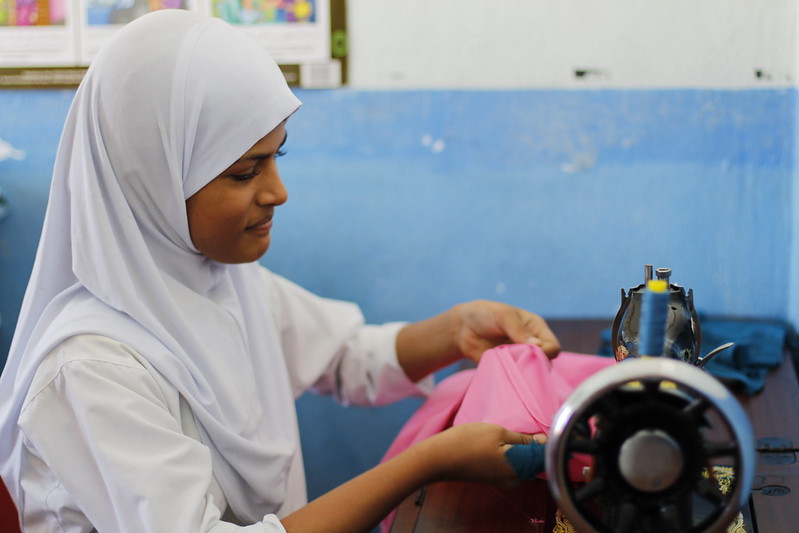
Commentary by Tham Soon Seong
PENANG, May 22 – Malaysia has been tasked with the heavy burden of managing and handling some 150,000 Rohingya refugees as well as over 200,000 other refugees from Myanmar since their influx into the country years ago.
They are refugees who have entered the country with legal papers, but what about those who have come in illegally and captured? They have been providing another strain of stress to an already stressed system.
An insight into this dire position came on April 20th this year, when some 528 Rohingya refugees broke out from a detention camp in Southern Kedah. It caused serious time, effort by the authorities to re-capture them and re-locate them in separate camps throughout Malaysia. Up to date, some of the escapees are yet to be re-arrested.
The dilemma if the country was pointed out by Foreign Minister Datuk Seri Saifuddin Abdullah while he was in Washington, attending the ASEAN-US dialogue. He put it simply: “Malaysia needs more funding to assist the refugees.”
Azril Mohd Amin, the founder and chairman of Central For Human Rights Research and Advocacy (CENTHRA) in an article in the New Sunday Times entitled, “Myanmar’s refugee crisis creates problems for Asean members” meanwhile pointed in the direction of the Tatmadaw, the armed forces of Myanmar, for the situation.
He wrote: “The Tatmadaw has deliberately, calculatedly and relentlessly driven the Rohingya out of their land, knowing that this would flood ASEAN member states with refugees, thereby imposing upon us complex legal , political” (and social situation).
“The issue of the Rohingya have become a divisive topic in our society, particularly over the course of the pandemic, as we struggle to adopt approaches that are humane and fair to the refugees, and at the same time, not detrimental to the rights and opportunities of our citizens.”
He said they posed economic problems that the government would be forced to address and the situation cannot be allowed to continue.
Home Minister Datuk Seri Hamzah Zainudin in late April called for a stop to the issuing of refugee cards for them by the United Nations High Commissioner for Refugees ( UNHCR) saying, “We cannot provide space for them to easily enter the country without documents and immediately get UNHCR cards.” Obviously the authority and rights to issue such refugee cards, if required, are the rights of Malaysia.
Over the years, Malaysia had been too generous apart from the obvious humanitarian reasons as well as that of those based along the lines of “Muslim brotherhood”, and provided lavishly to accommodate these refugees.
While the good that Malaysia has done cannot be denied, there must be a resolution for the long term as Malaysia cannot go on with the growing financial challenges.
Politicians and government officials had not taken into active consideration the costs of maintaining and managing these some 350,000 refugees.
WHAT IS THE COST OF MANAGING THESE 350,000 REFUGEES
Lets say if it costs RM50.00 a day to take care of each refugee – that covers meals, health and medical facilities, security, manpower requirements and provision of education – it easily costs Malaysia a daily budget of RM17.50 million, thus RM525 million a month and ultimately RM6.3 billion a year.
Why should Malaysia spend this huge sum of money to keep these 350,000 refugees. This is simply not Malaysia’s problem, and that it can simply use this big sum of money to help Malaysia’s own poor and unfortunate citizens that need help.
The money could be even used to affordable houses for the low-income category of people in the country.
One pertinent question here is why other ASEAN governments, including Thailand, Indonesia, Singapore are not sharing the burden of bearing these refugees?
Developed nations like the US, UK, and Islamic countries are also not in the picture of the Myanmar refugees?
Has Malaysia brought the situation to itself? Before the 14th General Election, a big number of UMNO politicians were beating the drums of “Muslim Brotherhood” and humanitarian grounds to help the refugees. All these – at the expense of the Malaysians. Were some of these refugees trafficked into the country? Was there corruption and involvement of government servants in the illegal movement of some refugees around the country with profits in view?
According to a UN refugee agency, it costs approximately RM8000 to RM10,000 for a refugee to get into Malaysia.
Answers may not be forthcoming in how some of these refugees got into the country and how they have been found operating in parts of the country, but what is more of a priority now following the April 20th escape of the refugees from their detention centre is that a place must be found for them and it should be rightfully back to their home.
Tham Soon Seong from Penang is an active economic and political observer. The views expressed here are that of the author’s and not necessarily that of the Weekly Echo’s.